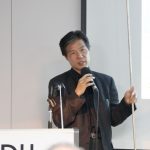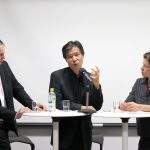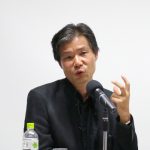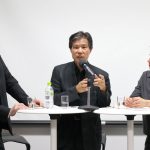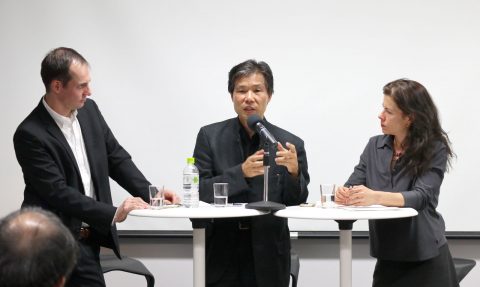
オーディオ
ダウンロード
場所
Deutsches Institut für Japanstudien
Jochi Kioizaka Bldg. 2F
7-1 Kioicho, Chiyoda-ku
Tokyo 102-0094, Japan
アクセス
登録情報
The event is held in English.
After the presentation and the comment there will be time for Q&A and networking.
Admission is free, registration is required.
Registration Form
We are sorry! Registration for this event is no longer possible.
A New Era of Immigration? Japan’s Guest Worker Programs in Comparative Perspective
2019年10月31日 / 18時半〜20時
Naoto Higuchi, Tokushima University
Kristin Surak, University of London
With around 1.5 million foreign workers and over a million permanent and long-term foreign residents, Japan is experiencing unprecedented levels of immigration. In 2019 three new residence statuses were added to the Immigration Control Act. Furthermore, the government promises to foster social integration by strengthening Japanese language education and providing public services in multiple languages. But access to non-temporary or even permanent resident is highly selective.
The migration industry plays a key role in international mobility in Asia. Taking a comparative look at the relations between the state and border spanning migration businesses in Japan, Taiwan, and South Korea Kristin Surak advances a taxonomy of the ways states partner with migration industries and discusses the possibilities and pitfalls of each. Her analysis focuses on low-paid temporary migrant work programs, including the Technical Intern Training Program (TITP), Japan’s major gateway for temporary migrant labor from Asia.
Focusing on the recent additions to Japan’s immigration control legislation, Naoto Higuchi identifies a shift from a preferential treatment of foreigners based on “blood ties” to a neoliberal model based on meritocracy. The new residence categories “Specified Skills 1 & 2” enable immigration authorities to select migrants and determine their rights and length of stay based on performance, gauged by language ability and skill acquisition. In contrast, the newly prepared visa status for fourth-generation Nikkeijin looks — at first glance — like a continuation of immigration based on ethnic selection criteria. Yet, the government changed its policy to exclude Nikkeijin from social integration by limiting their stay to maximum five-years, and the road to permanent residence is becoming increasingly based on meritocratic selection criteria. The new movements raise interesting puzzles for exploring the future of migration to Japan.
Naoto Higuchi is an Associate Professor of Sociology at Tokushima University. His research interests include xenophobia, social movements and social capital of migrants. Among his recent publications is Japan’s Ultra-Right published by Trans Pacific Press in 2016.
Kristin Surak is an Associate Professor of Politics at SOAS, University of London. Her research focuses on international migration, nationalism, culture, and political sociology. Her 2013 book Making Tea, Making Japan: Cultural Nationalism in Practice received the Outstanding Book Award from the American Sociological Association’s Section on Asia.

